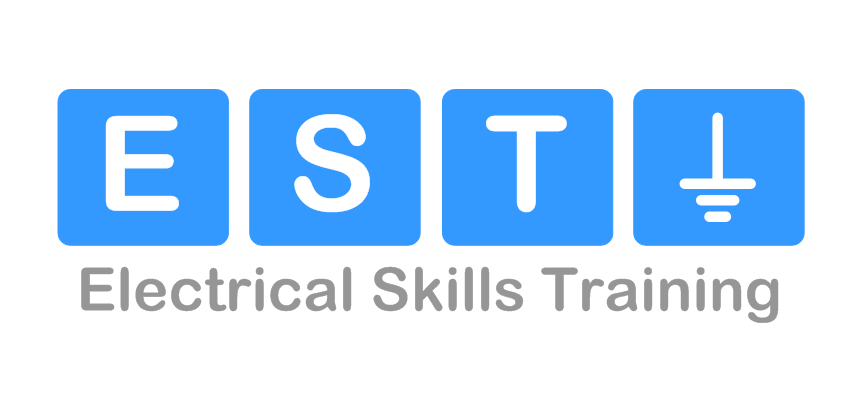The Diploma in Electrical Installation (Level 3)
City & Guilds: 2365 The Diploma in Electrical Installation (Level 3)
Course duration: 33 Weeks
Cost: £2,850 + VAT (£3420) inclusive of exam fees, refreshments and free parking on each day of training
The Diploma in Electrical Installations (Level 3) is ideal for those who have already completed City & Guilds 2365 Level 2 and are now ready to progress their career to becoming a fully qualified electrician. READ MORE...
On completion of both 2365 Level 2 and Level 3 Diplomas, you will be eligible to progress to complete City & Guilds 2357-44 NVQ and apply for your JIB Gold card as a registered electrician.
We also offer a City & Guilds 2365 combined Level 2 & 3 course package. To find out more please call 01527 834688.
Course Entry Requirements:
The Diploma in Electric Installation (City & Guilds 2365) qualification is for anyone who is aiming to become an electrician working on domestic, industrial, or commercial installations, regardless of previous experience and knowledge.
The course offers an alternative route to becoming a qualified electrician without the need to be an apprentice. With the apprentice route you would need to find relevant employment first, attending college on a day release basis whilst acquiring on-the-job training from your employer.
The apprentice route takes at least a couple of years to complete and typically the low rate of starting pay can sometimes be an obstacle for mature candidates.
The Diploma in Electrical Installation (City & Guilds 2365) gives you the same underpinning knowledge as the apprenticeship route except you do not need to have a job in the industry before you start.
To enrol on the Level 3 Diploma you’ll need to have completed the Level 2 Diploma (City & Guilds Level 2: 2365) or equivalent.
Term Dates:
We deliver this course at our Bromsgrove training centre one day per week either during the week or at weekends.
From time-to-time attendance may be required on different days of the week, where this is the case delegates will be notified in advance unless due to unforeseen circumstances beyond our control.
Assessment:
You will be assessed throughout the course by on-line exam, written assignments and practical assessments.
Books & Equipment Required::

18th Edition Wiring Regulations

On-Site Guide

Electrical Installations Level 2 Diploma (2365) Book 1, Peter Tanner

Electrical Installations Level 3 Diploma (2365) Book 2, Peter Tanner
What can I do on completing the course?
After the course you can register as a Domestic Installer or progress toward becoming a fully qualified electrician.
Progress Towards Becoming A Fully Qualified Electrician
After completing the City & Guilds Level 3 Diploma you will need to complete the Performance Units (sometimes referred to as the NVQ). You will need to secure relevant work experience to build up your practical skills and be assessed in the workplace. On completion of the Performance units, you would then undertake the AM2 trade test and would then be a fully qualified electrician.
There would be an additional charge for undertaking the performance units. The Level 3 NVQ assessment costs £1100 +VAT, with an additional £755 +VAT required to undertake the AM2 trade test.
Course Content:
There are units on health & safety, electrical installation design, electrical installation craft, diagnosing and correcting electrical faults, inspection, testing and commissioning, environmental technology systems and electrical science and principles.
MODULES – LEVEL 3
Understand the fundamental principles and requirements of Environmental Technology Systems

Fundamental working principles of micro-renewable energy and water conservation technologie

Fundamental requirements of building location/building features for the potential to install micro-renewable and water conservation systems to exist

Fundamental regulatory requirements relating to micro-renewable energy and water conservation technologies

Typical advantages and disadvantages of micro-renewable energy and water conservation technologies
Principles of Electrical Science

Electrical supply systems

How different electrical properties can affect electrical circuits, systems and equipment

Operating principles and applications of DC machines and AC motors

Operating principles of electrical components

Principles and applications of electrical lighting systems

Principles of electrical heating
Fault Diagnosis and Rectification

Health and safety requirements relevant to fault diagnosis

The importance of reporting and communication in fault diagnosis

The nature and characteristics of electrical faults

Fault diagnosis procedures

Procedures and techniques for correcting electrical faults
Inspection, Testing and Commissioning

Requirements for completing the safe isolation of electrical circuits and installations

Requirements for initial verification of electrical installations

Requirements for completing the inspection of electrical installations prior to their being placed into service

Requirements for the safe testing and commissioning of electrical installations

Requirements for testing before circuits are energised installations

Requirements for the completion of electrical installation certificates and associated documentation

